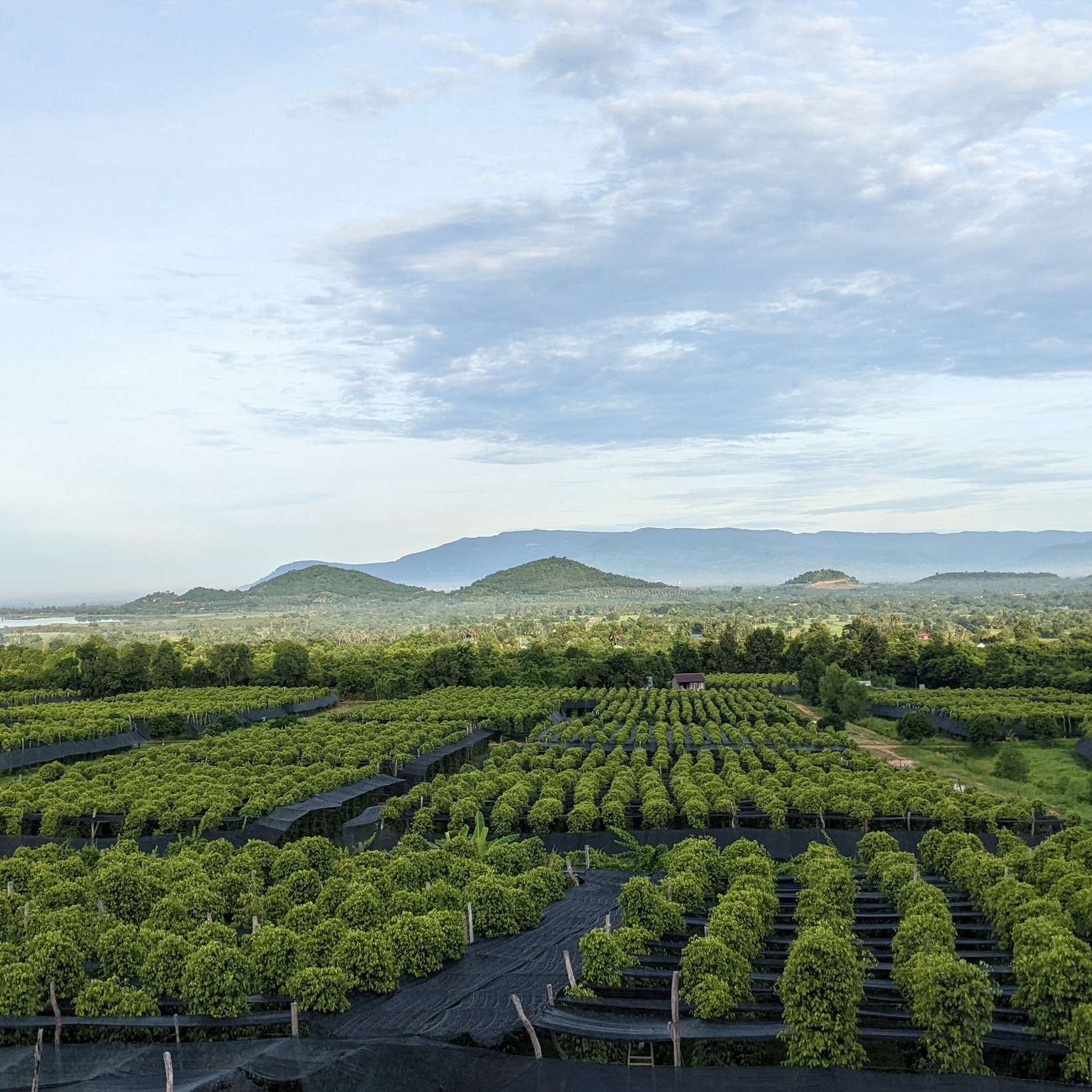
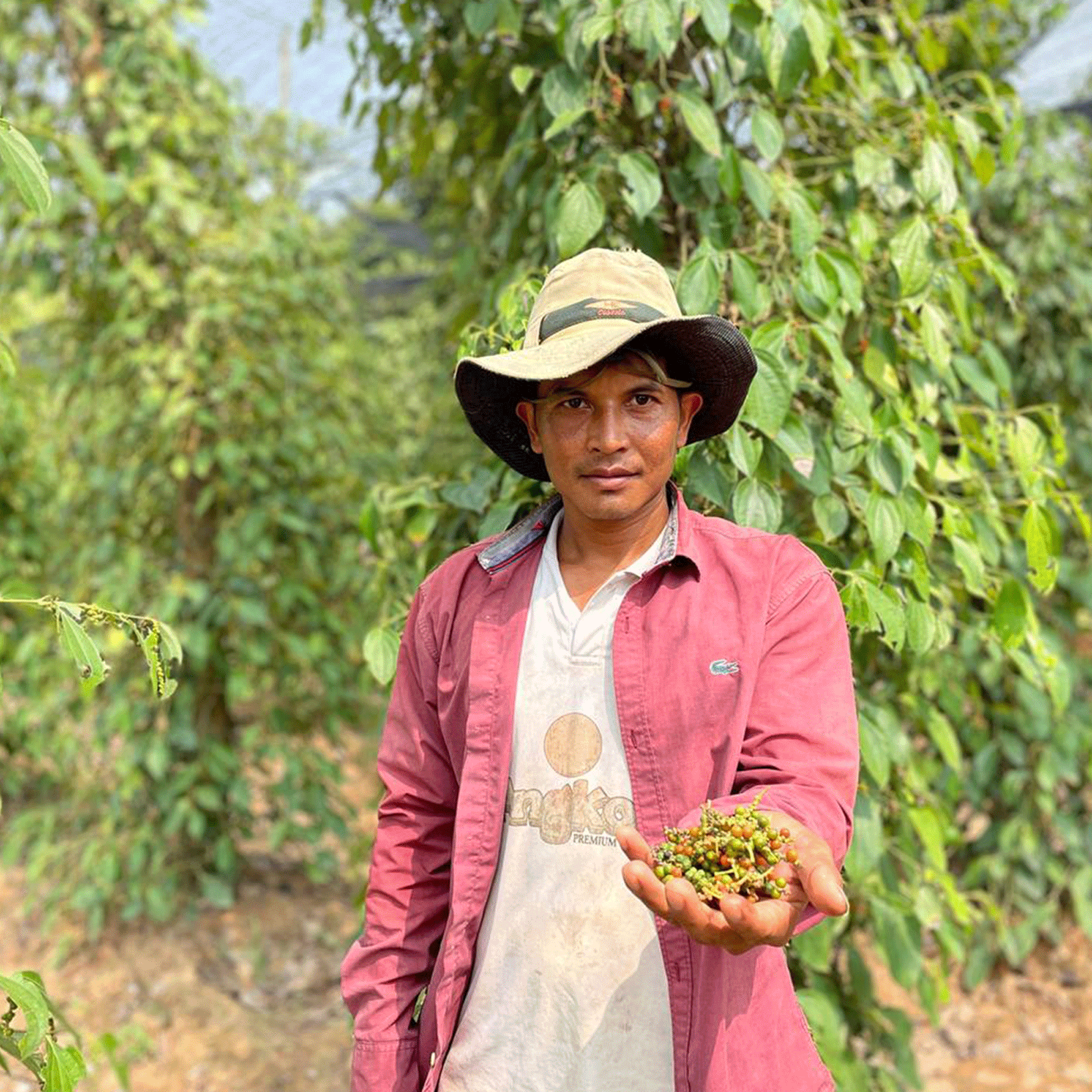
We tell you all about our organic agriculture
At our Kampot Farm, in Southern Cambodia, we believe that the health of the soil and the plants is of the utmost importance! That’s why we employ organic farming methods that rely on natural inputs, and not only help to maintain soil fertility but also promote the biodiversity of our local environment.
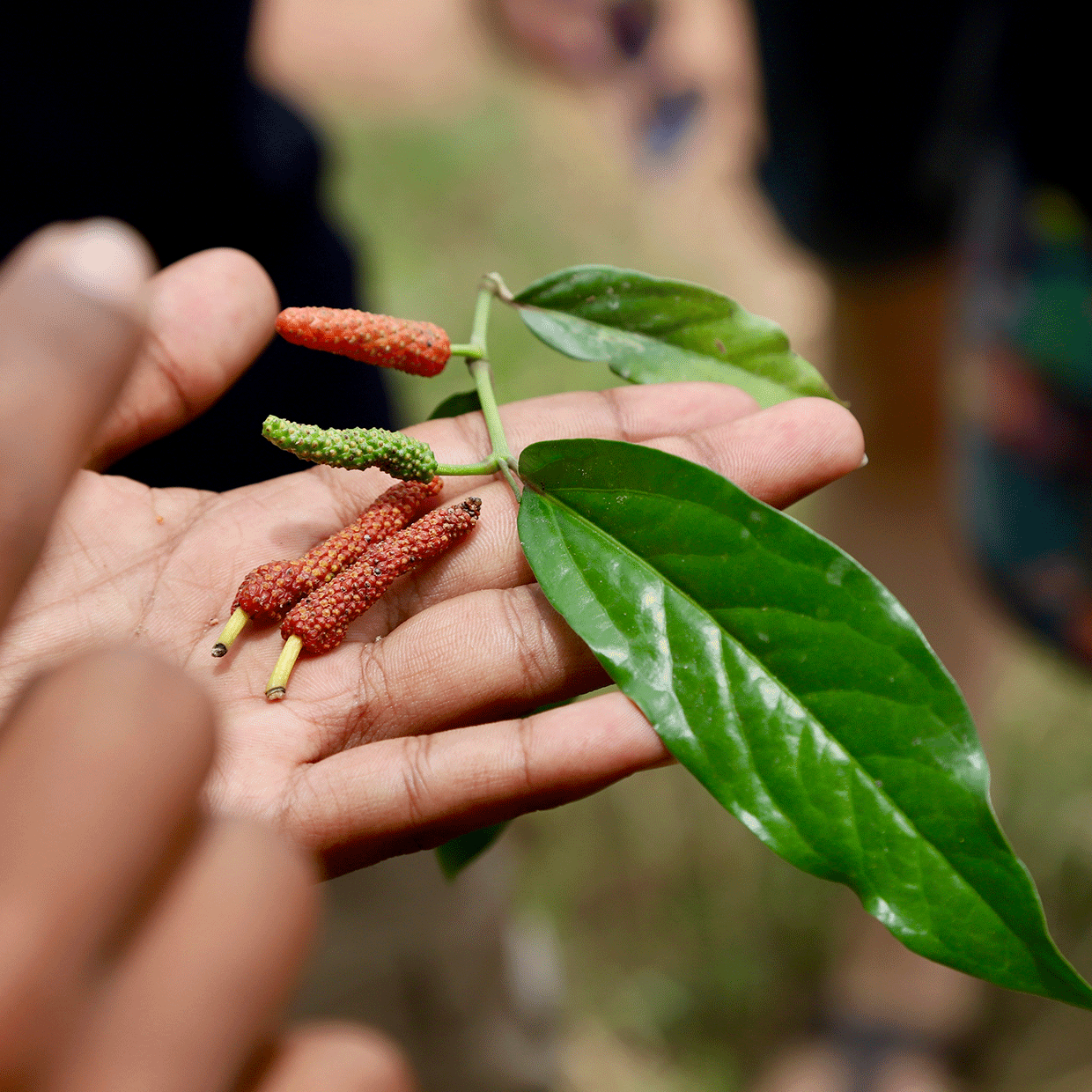
Organic certification, a choice determined since the creation of La Plantation
When we set up the Kampot Pepper plantation in 2013, it seemed obvious to us to build the project on the foundations of organic agriculture. Starting with a virgin piece of land, we did not have to ask ourselves questions about the history of cultivation.
The creation of La Plantation was based on two standards: the specifications of the Protected Geographical Indication of Kampot Pepper (PGI) and the international standards of organic certification.
This sustainable agriculture project is also part of a context of environmental protection, respect for the biodiversity of flora and fauna of the neighbouring hills, optimisation of rainwater collection to irrigate the plantation, and reforestation of precious tree species.
Three years of watching the pepper trees grow
Agricultural projects are long-term and require patience and determination. In organic farming, we only use natural fertilisers and pesticides. And for the Kampot pepper, it took three years before the first bunches could be harvested. The vines grow until they reach the top of the wooden pole to which they are attached, then they thicken and the first bunches are kept to produce the famous Kampot pepper.
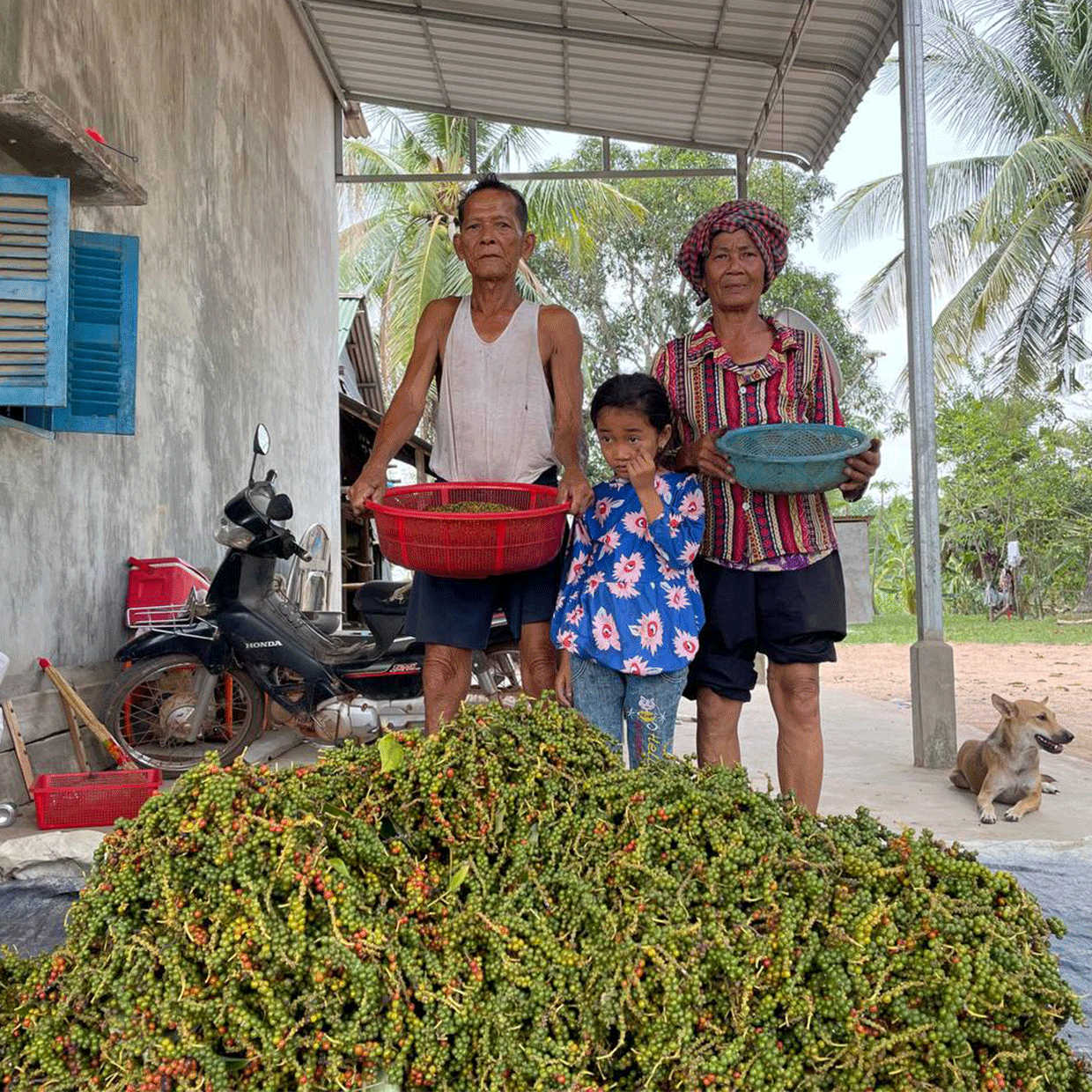
A natural cycle that undergoes climate change
Kampot Pepper follows an annual cycle through the seasons: in the rainy season from July or August onwards, the new pepper bunches appear and flower. It is vital to have rain at this time for the pollination process to take place. The flowers then turn into clusters. These are very tender and therefore prone to insect attack. It is at this time of year that we will use our homemade repellent recipe, concocted by our farmer chef, made from the leaves and roots of local plants.
The bunches will take about eight months to ripen and be harvested and selected. The dried seeds will then turn into Black, Red or White Kampot Pepper, depending on the ripeness of each seed.
Once harvested, we add nutrients to each pepper plant, using a mixture of dried cow dung, bat guano and dried and ground cow bone. This traditional recipe is the one that was already used at the beginning of the twentieth century, during the French protectorate in Cambodia.
In recent years, we have seen real changes in the climate with repeated rains during the dry season, disrupting the harvesting and drying of pepper. The rainy season has also tended to start later and later in the year, shifting the whole cycle from a few weeks to several months. At the same time, the weather has become more violent, with heavy rains and strong winds.
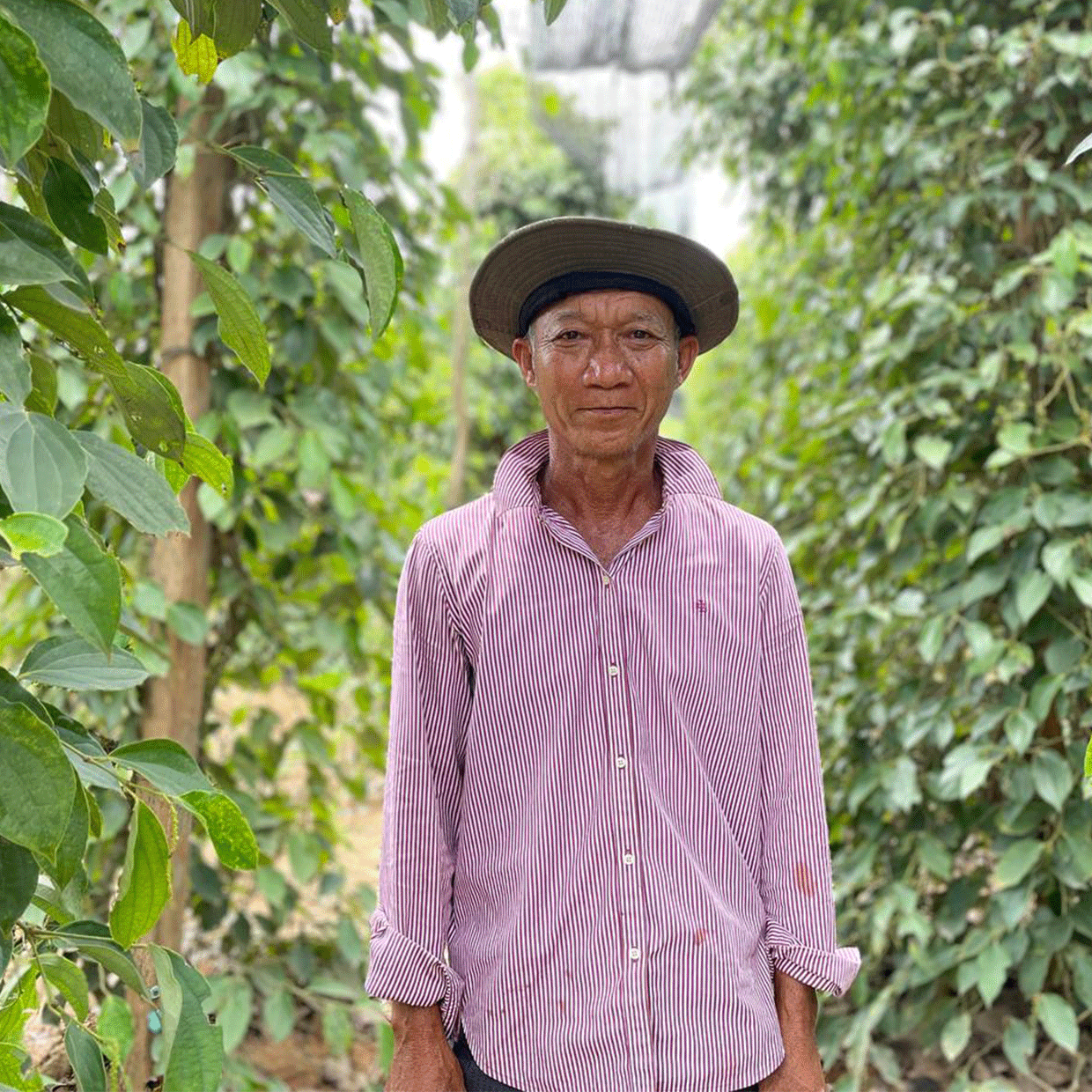
La Plantation’s organic certification: challenges for health and biodiversity
Since the first harvest of Kampot Pepper in 2016, we have obtained organic certification from the certification body Ecocert. The standards for organic certification are the same in Cambodia as for a farm in Europe or the United States and this guarantees quality production without the use of pesticides. Our range of organic peppers and spices has expanded over the years.
For the other spices, we rotate the soil to provide each plot with the necessary nutrients, either by resting it or by planting green manures that regenerate the farmland.
Our Organic Family Farm Cooperative
This certification requires a good knowledge of organic standards and procedures. We wanted to give the benefit of this to small farms producing Kampot pepper and other spices in the region and therefore created a group of organic producers, under the control of La Plantation. We help small farmers to respect organic standards and train them in good practices. In exchange, we commit to buying all of their organic production. Our organic group now consists of about twenty family farms and is growing every year. Our challenge is to make our farmers aware of the importance of sustainable and organic agriculture and its benefits for the environment.








